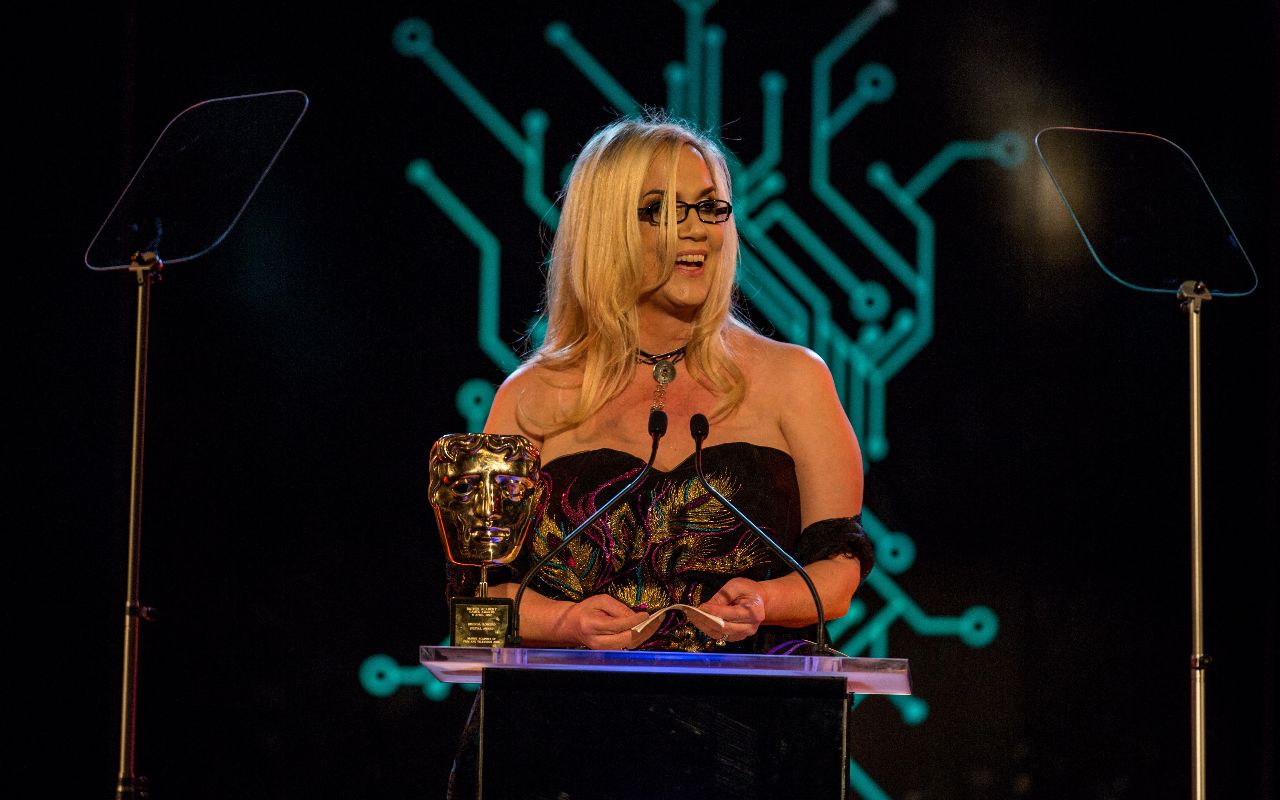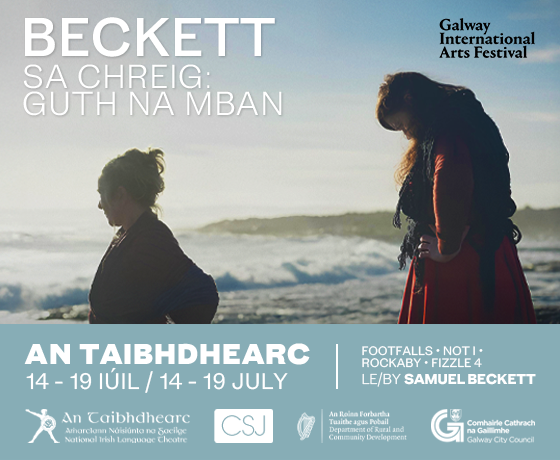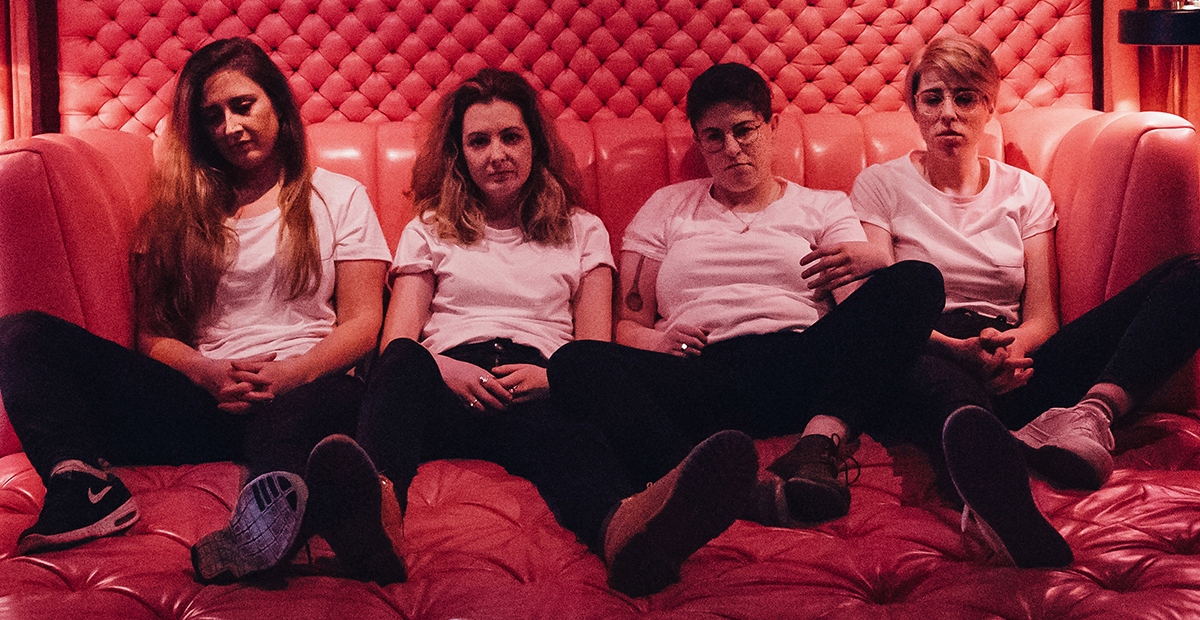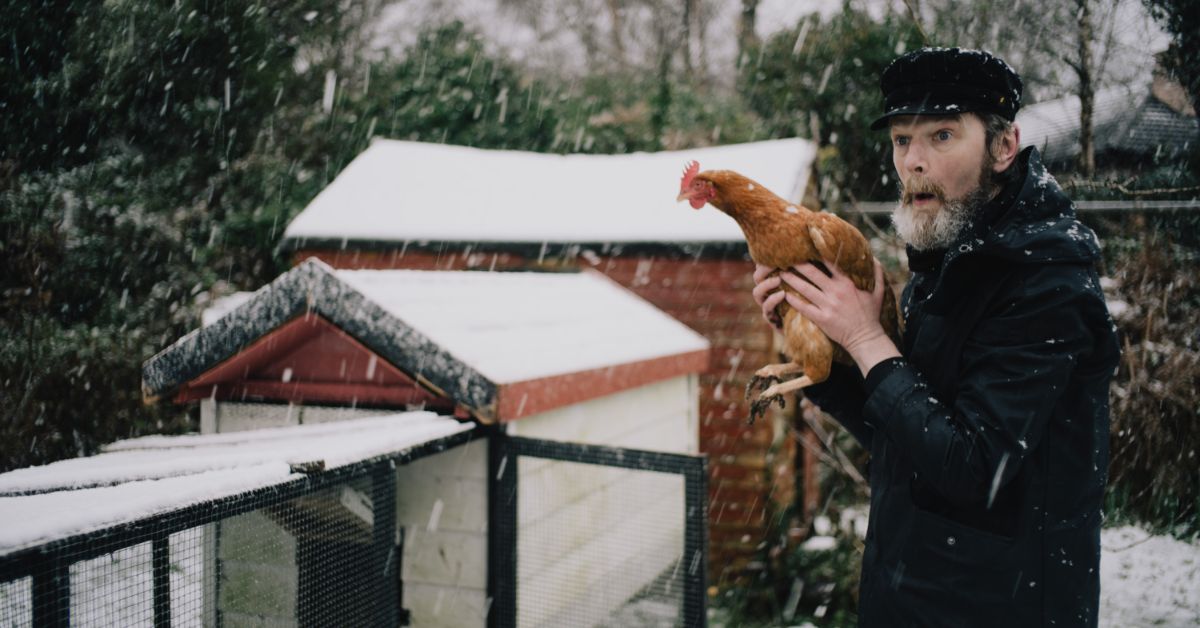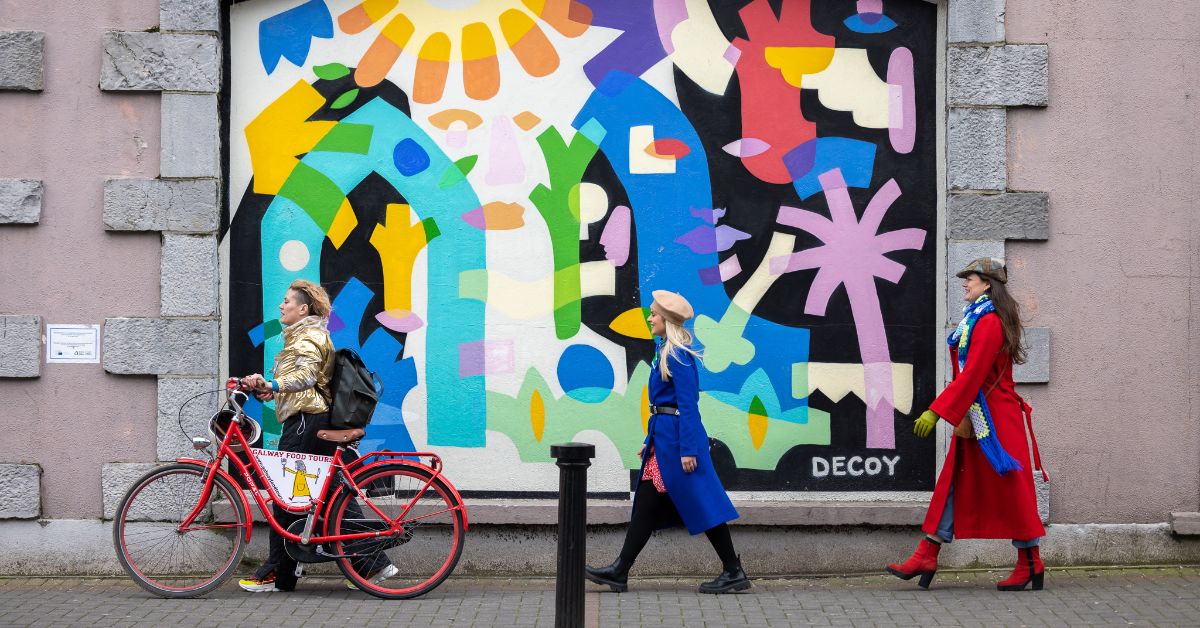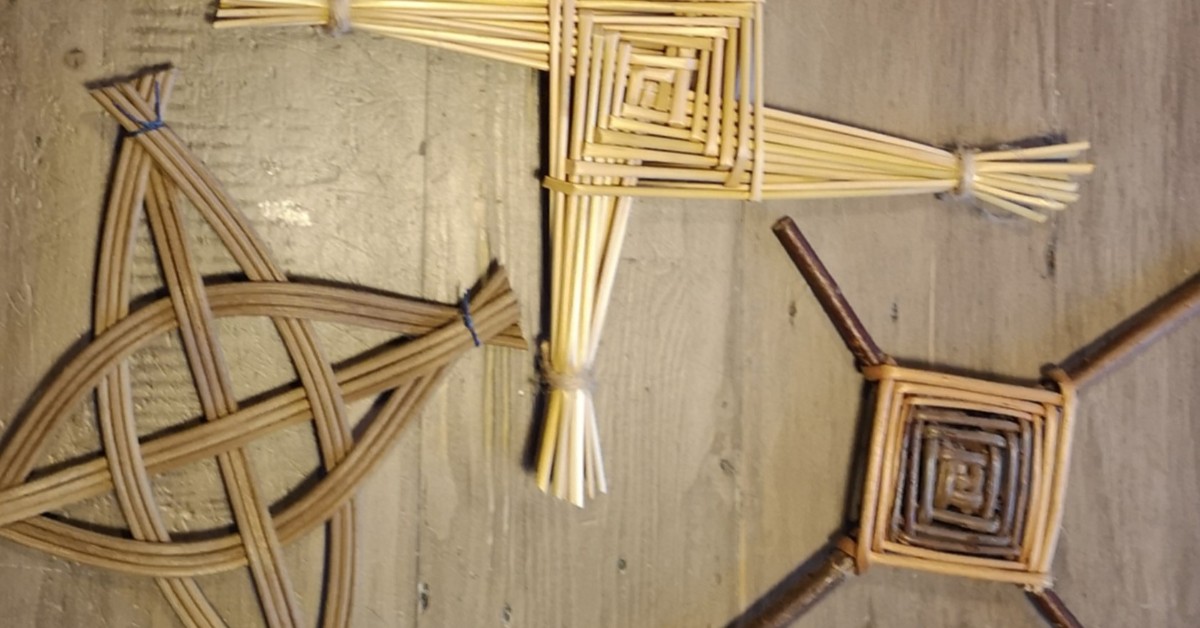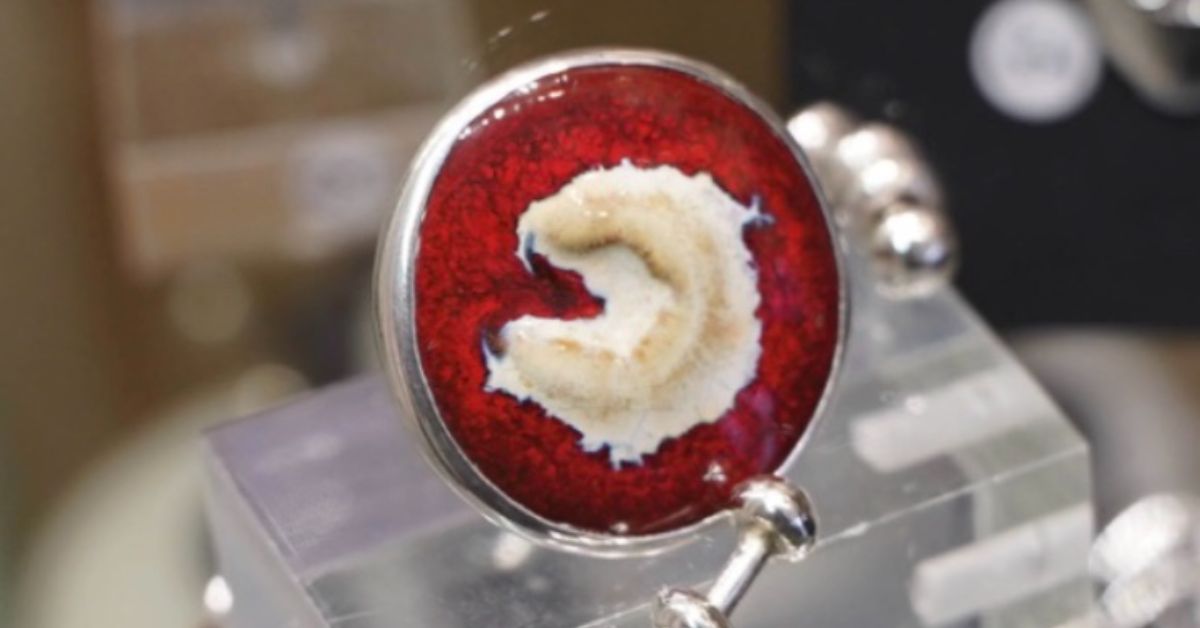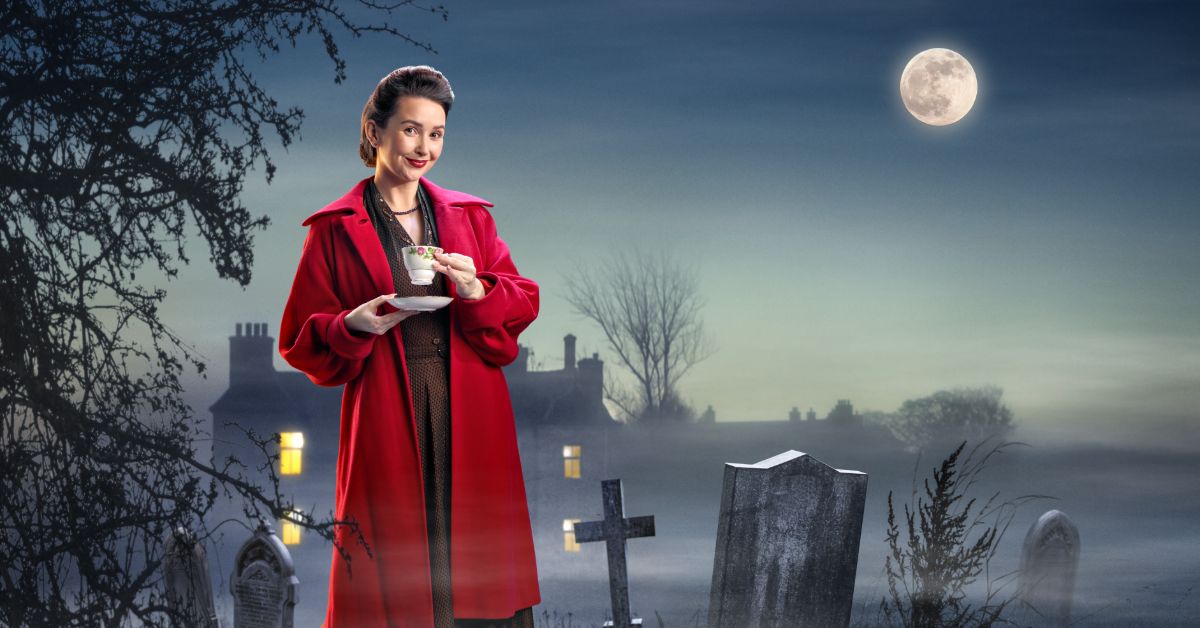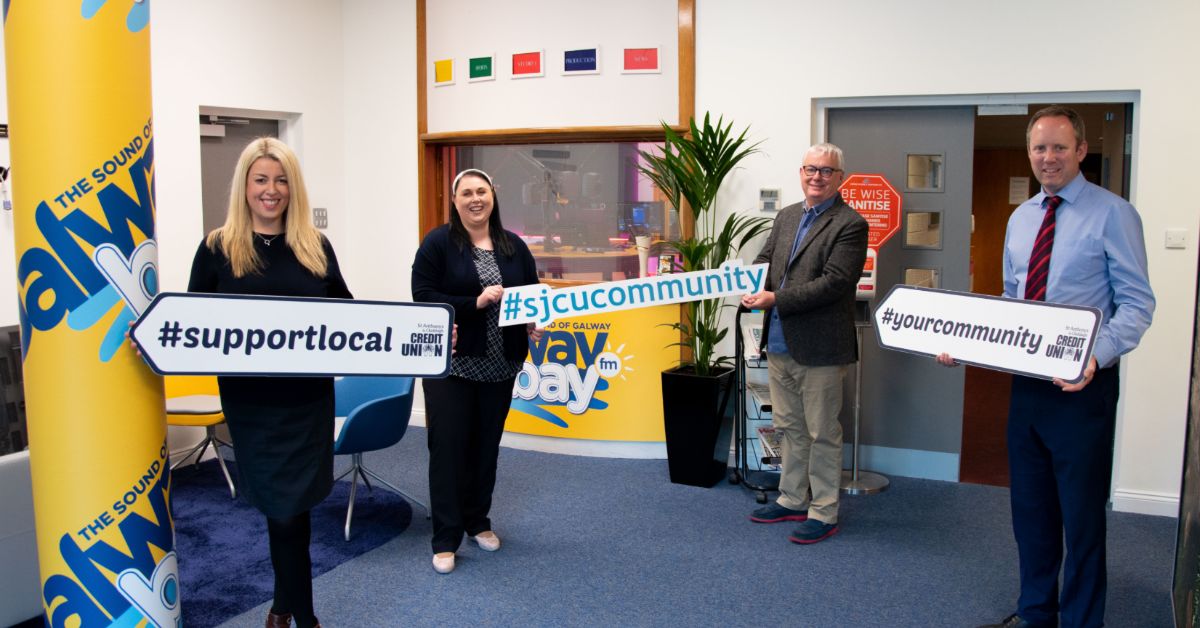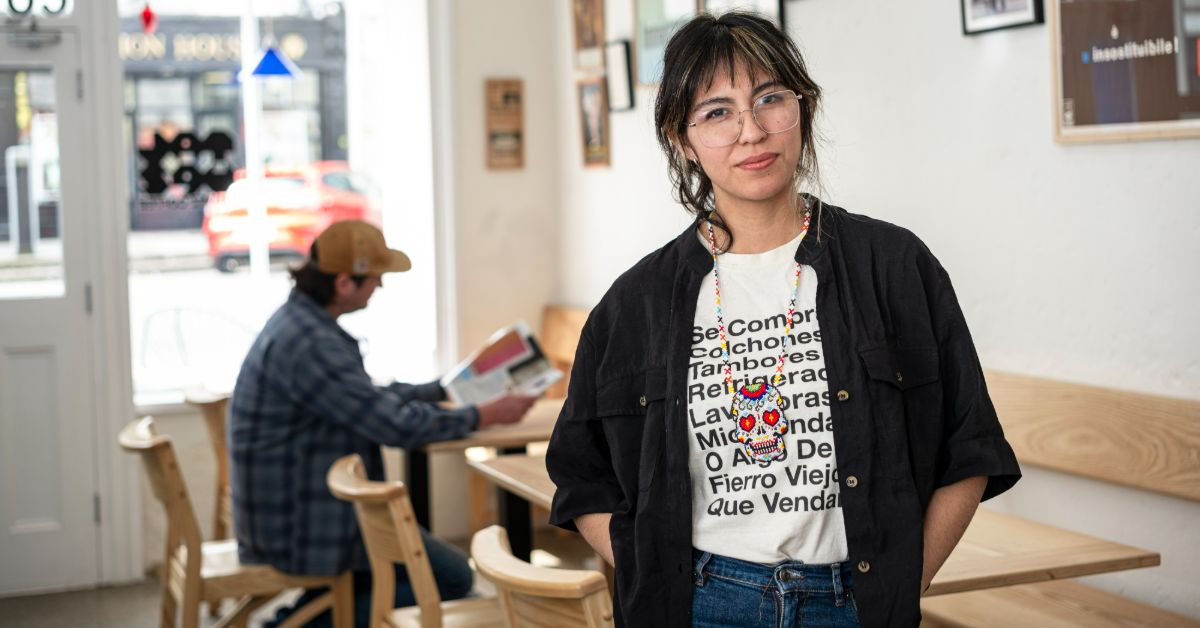Romero Games are an independent game design company based right here in Galway, co-owned by the powerhouse couple Brenda and John Romero.
John Romero is best-known as a co-founder of id Software and their work on the cult classic game Doom, which pioneered first-person shooter games. He has co-founded eight successful software development companies, including Romero Games in 2015, and has worked on over 130 games over the course of his career.
Brenda Romero is a BAFTA-award winning game designer, artist and Fulbright scholar, who has worked in the game industry since 1991. Her work spans both digital games and board games, including seminal titles like the Wizardry and Jagged Alliance series, and titles in the Ghost Recon, Dungeons & Dragons and Def Jam franchises. She also teaches workshops and writes books on game design. Romero Games have a team of fourteen artists, programmers, designers and QA testers behind them, and have two games in the making across multiple platforms.
We chatted to Brenda about her work, her advice for newcomers to the gaming industry, and why her family chose to relocate from sunny southern San Francisco to Galway.
What drew you to games and game design?
I don’t remember ever not liking games. From the time I was five, I remember collecting game parts and creating my own games. I would collect Legos and create these make-believe worlds and I remember wanting other people to play in these make-believe worlds. I always loved making games or changing the rules to games and seeing how other people played. I don’t remember a time when that wasn’t something that I did.
You’ve achieved so much – how does it feel to reach and to inspire so many people on such a personal level, through something you love doing?
I always feel like someone is talking about someone else when I hear these things. The coolest moments aren’t when I think of the things I’ve been lucky enough to do in my career. Super cool moments come when I do stuff like Babaro and I Wish. For example, at I Wish, 400 young girls are brought in to listen to four or five female speakers who love what they do. And to be able to share my excitement around tech with these young women and see them maybe come into the field as well, that to me is the coolest thing! That to me is the achievement.
Are there many creative differences between creating physical and digital games? What’s your favourite part of game development?
Fundamentally no. you’re still creating a game, it still has rules, it still has the space in which its played whether it’s a table top or a PS4. There’s a lot of stuff that’s the same. Designing board games, I would say is more challenging- its completely exposed and has to hold people’s attention even though usually its just paper sitting on a table. Every board game I’ve made I’ve worked just by myself building it, whereas with digital games, our team will expand and improve my idea way beyond where I could’ve taken it. And this is absolutely what is happening with our team at Romero games, they’re absolutely amazing, the best team I’ve ever worked with.
Can you talk a bit about the Documentary Game, Train – why you wanted to create Documentary Games, what the process was like?
My series of documentary games started out while my daughter was studying the Cromwellian invasion for school. She was getting fed up with it and asked could she go play a game, meaning PS4 or something like that. However, I said yes, and created a game about the Cromwellian invasion on the spot. The whole experience was really enlightening for her, she became part of it and it really stuck with her. I decided to create a series of documentary games with the intention of people living and understanding major events in history. Train is a game about complicity, and about blindly following the rules, even when those rules lead to horrible outcomes. Ultimately, it’s about breaking the systems, from outside if necessary, instead of being bound to them.
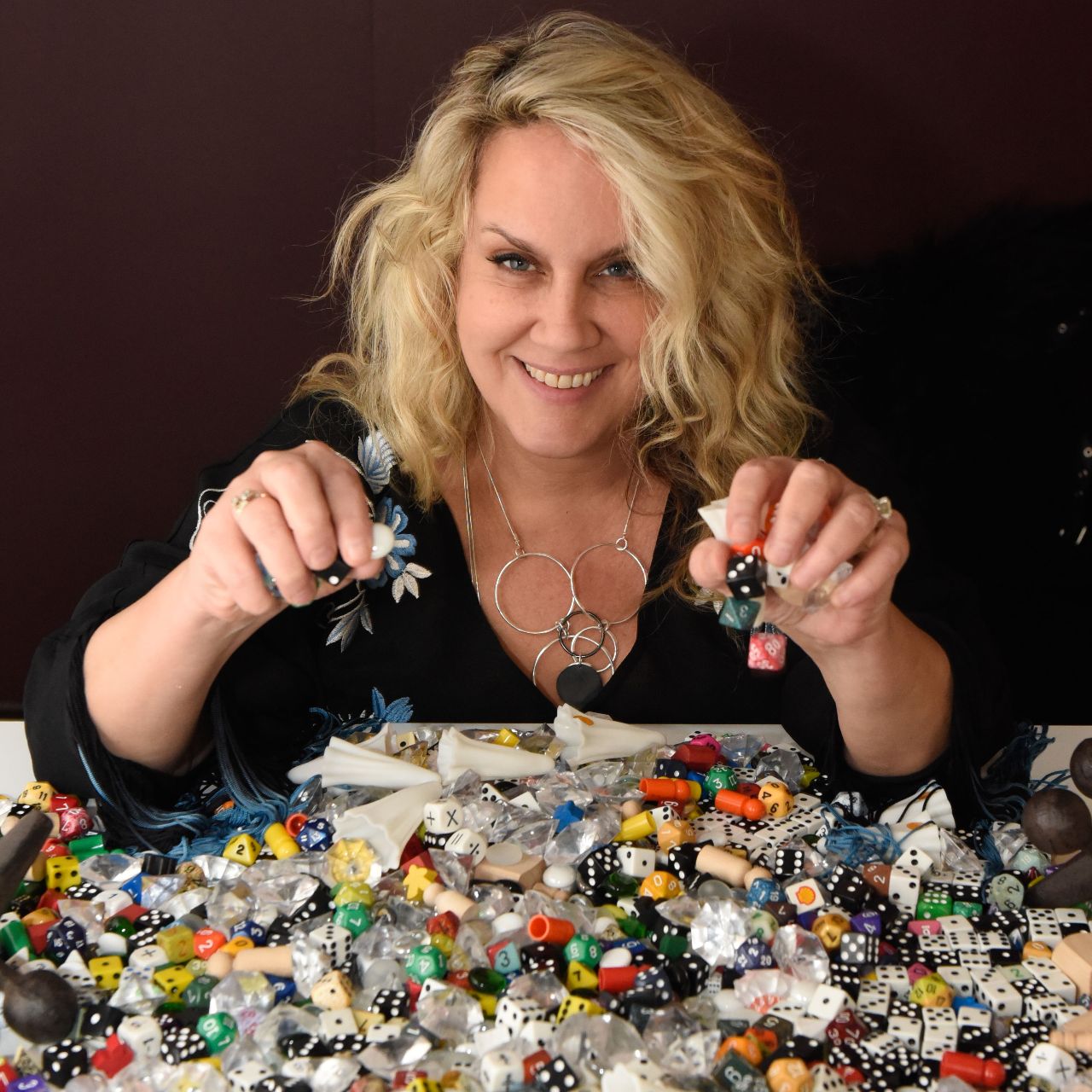
As a teacher of game design, what do you hope to pass on to your students?
The more popular games get, the more people want to break into games. Students often tend to have the assumption that they take a four-year course and when they get out of college, they’re going to get a job. It’s not that simple. There are hundreds of students who want to break into the game industry. Let’s say we have a typical class of 20, at the end of the year they will all have to submit the same class project. What I want to know is what are you doing beyond that? What are you doing to make the difference between a graduating student and someone who is potentially going to break into the game industry. For example, I heard of this student who wrote his own game engine in C++ before he had even graduated! That was way above and beyond what he actually needed to do. So that’s my advice and what I would like to pass on to students is, work hard, be passionate, go above and beyond and put life into what you do.
Why did your family decide to settle in Galway?
We came to Ireland and travelled from Dublin to Letterkenny to Galway to Kerry for two and a half months. And when we left and came back home to Silicon Valley, we just had a feeling that we really wanted to go back. The thing we loved most was the community, the people, and a feeling of wanting to be a part. We made the decision to pack up from Silicon Valley and move to Ireland. John and I wanted to raise our kids to grow up in that type of community. We chose Galway- It’s a very funky, creative community here. There is one of everything you need, It’s small but I’d never change it. I know Natalie who owns McCambridge’s, I know Jess and Dave Murphy who own Kai Restaurant. It is insane to me that I’m going to be on the cover of This Is Galway Magazine! I honestly don’t know why anyone would want to live anywhere else. We were here for 24 hours and we knew we wanted to live here, and we have 0 regrets about it.
"I honestly don't know why anyone would want to live anywhere else."
Are your children into game design?
My fourteen year old son actually has a game out on the app store called Gunman Taco Truck. It was featured by Apple and he’s had an article written about him in the Wall Street Journal! He won an accolade! That moment was cooler than winning the BAFTA. He made it, it was completely his idea; we just helped him make it. My 17-year-old daughter is working on a narrative game for a professional company, she’s writing for it. One of my kids still loves to play, but isn’t as interested in creating games, which is totally cool. She’s going to go to college and doing what she loves! Our kids are raised on games and in the gaming world, and if they want to go into it, [that’s] awesome -- we’ll help them out and give them any opportunities we can, and if not, they can do their thing! We just want them to be happy.
With Romero Games that you’ve created with your husband, and your children interested in creating games with you, how does it feel to have a family who are so passionate about the exact same thing as you.
It’s the best thing in the world! I feel so fortunate. John and I love games and we want to share that experience with our kids. Not a day goes by that we don’t say how lucky we are. We have so much fun, we often all get together and play board games or we get together and play Minecraft. We have four great kids, we’re just so happy to live where we live and to do what we’re doing.
What projects are you excited about now, going forward? Anything released lately you’re playing or looking forward to playing?
We’re planning on opening a museum in 2020! John has notebooks going back to when he was eleven years old. We can actually trace games like Doom which led to games like Pub G and we can trace that all the way back to the very beginning. We have in storage an entire archive that can trace the development of the most popular type of game from its very origins all the way through. Instead of just a museum where people walk in and see a bunch of consoles on the wall, people will experience how games are made. So that’s our next step and like everything else, we’re super excited!
Find out more about Brenda and John Romero and Romero Games at Brenda.games and RomeroGames.ie
WORDS by Éilis Cosgrove
Published on Updated on


